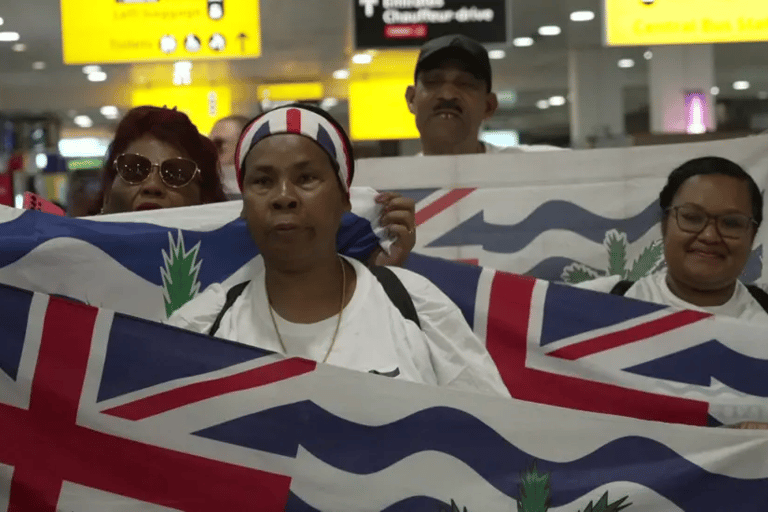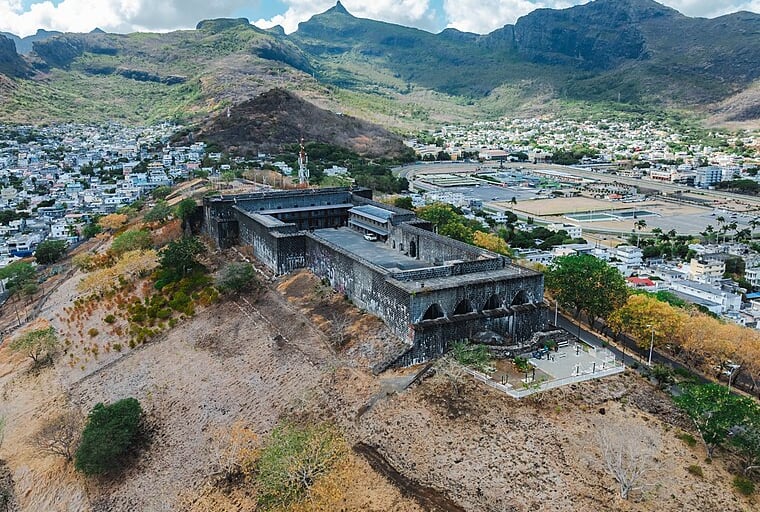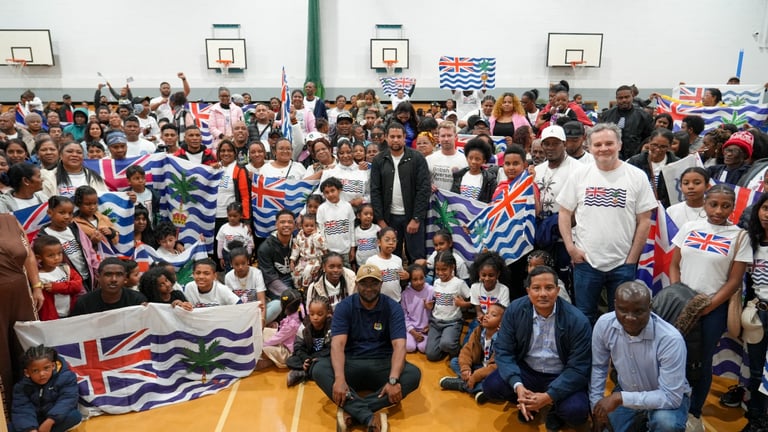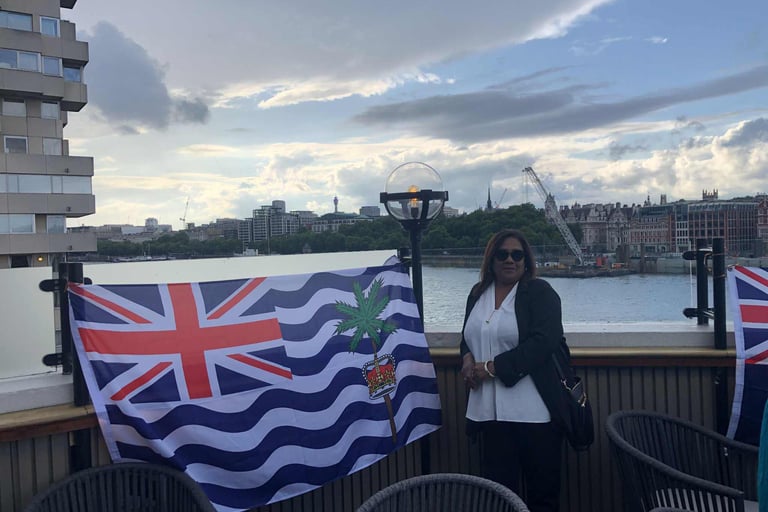From Peros Banhos to Exile: Madeline’s Story and the Chagos Islanders’ Struggle
Think about what it would feel like to be told you can never go back to where you were born, to have your home taken away, and to be left out of decisions about your own land. This is what thousands of Chagossians face, including Madeline. She left Peros Banhos as a child and has lived in exile ever since.
NEWS FROM THE OVERSEAS TERRITORIESBRITISH INDIAN OCEAN TERRITORY
“My navel was cut in Peros Banhos. This first bond and connection cannot be ignored or erased”
Think about what it would feel like to be told you can never go back to where you were born, to have your home taken away, and to be left out of decisions about your own land. This is what thousands of Chagossians face, including Madeline. She left Peros Banhos as a child and has lived in exile ever since.
Nowadays, as governments and treaties decide the fate of the Chagos Archipelago, one question remains: will the people who were forced to leave finally get a say in their homeland’s future? Their fight is not just about land. It is about who they are, their rights, and justice.
Madeline was born in 1958 on Peros Banhos, which is part of the Chagos Archipelago. When she was four years old, her family travelled to Mauritius for her mother’s medical treatment. They intended to return home once her mother recovered, but the islands have since been closed off. Like around 2,000 other Chagossians who were displaced from the archipelago to Mauritius and the Seychelles between 1965 and 1973, Madeline and her family became exiles (Source:“That’s When the Nightmare Started”: UK and US Forced Displacement of the Chagossians and Ongoing Colonial Crimes | HRW)
Sixty-three years later, Madeline is settled in Nelson, England. She identifies herself as a British Chagossian and stands firm against the UK Government's agreement to hand over the Chagos Archipelago to Mauritius. "The Chagos Archipelago belongs to the Chagossians, not to Mauritius."
Madeline fights for self-determination
Madeline’s resistance to Mauritian control is rooted in how her community was treated after their expulsion. ‘No great effort was made to help us relocate. Families arriving in Mauritius were left to themselves, and people from my community have always faced stigma. We were viewed as savages," she recalls. These memories fuel her distrust. Madeline advocates for self-determination instead of relying on the Mauritian administration. “Years ago, we had no say when the families living on the Chagos Islands were expelled. We, Chagossians, we deserve the right to participate in any decisions that affect the future of our lands,” she emphasises.


When Madeline arrived in the UK, the BIOT family supported her as she adjusted to a new country. At first, her limited English made daily life overwhelming. But with patience, encouragement, and warmth from the community, she has slowly adapted and begun to find a sense of belonging.
Her voice shakes as she expresses her wish for the islands to remain under British rule. “This is how I feel in my heart. The British Government has always governed the island. I believe that the British Government and its institutions will protect our rights and provide our community with opportunities for a better life.”
Exiles from home, Bound to the islands
Yet her political stance is only one part of her struggle. At its heart lies a personal dream: going back to the land where her life began. "My navel was cut in Peros Banhos. Even in my exile, that atoll in the Chagos Archipelago remains my place of belonging. This first bond and connection cannot be ignored or erased. I want the right to claim it as my homeland and, as a native, to have a voice in the future of my island,” reiterated the native Chagossian.
Madeline’s story represents the experiences of thousands of Chagossians who were displaced and denied the right to return to the Chagos Archipelago to make way for a UK-US military base on Diego Garcia. Consequently, they were forced to rebuild their lives in unfamiliar places. For Madeline, the hardships began within her own family: “Life was hard in Mauritius. My dad, Sydrique, was a fisherman. He worked hard to support our family until he disappeared at sea. My mother, Germaine, took care of my brother, my four sisters, and me.”
These struggles were not confined to her household alone. Madeline recalls how the broader Chagossian community also suffered: “The Chagossians lived in very poor conditions in Mauritius.” Looking back on her life at Camp Yoloff in Port-Louis, she remembers not only the financial hardship but also the stigma they endured. “It was sometimes heartbreaking to see kids mock us for coming from the islands. They made us feel like we were not human.”


Despite this, Madeline never allowed her spirit to be crushed. “I never felt at home in Mauritius. I always felt rejected, but like many Chagossians, I had to survive,” she mourned. Across generations, the community continues to fight for recognition, justice, and the right to determine the future of their islands. As a mother and grandmother, the Chagos Islands are part of the legacy she wants to transmit to her children and grandchildren.
Chagossians refused to be erased
As Madeline and her community keep fighting for recognition, recent political changes have made their struggle even more urgent. On 22 May 2025, the UK and Mauritian Governments signed an agreement to secure the future of the UK-US military base on Diego Garcia.
After the Treaty enters into force, Mauritius will be sovereign over the Chagos Archipelago, including Diego Garcia. As a result of the Treaty, the British Indian Ocean Territory (BIOT) will no longer be a British Overseas Territory.
Before the treaty can take effect, the UK must update its law through the Diego Garcia Military Base and British Indian Ocean Territory Bill, which was introduced to Parliament on 15 July 2025. The Bill includes a provision to update the British Nationality Act 1981 to reflect that the BIOT will no longer be a British Overseas Territory.
This change will have significant legal implications for Chagossians. Future generations of Chagossians will not be able to apply for British Overseas Territories Citizenship under the route set up in 2022. Those who currently hold British Overseas Territories Citizenship through their connection to BIOT will not be able to pass it down to descendants born after the treaty enters into force.
For Madeline, these changes are more than mere technicalities. “It’s an attempt to erase our identity,” she laments. They strike at the heart of the Chagossian community's identity, legacy, and right to have a say in the future of their homeland.
Madeline’s story is not just her own; it represents the resilience, identity, and hopes of thousands of Chagossians who lost their homeland. Despite changes in laws and treaties, the bond between the people and their islands remains strong. The right to return, to belong, and to participate is non-negotiable—it is a fundamental human right.




